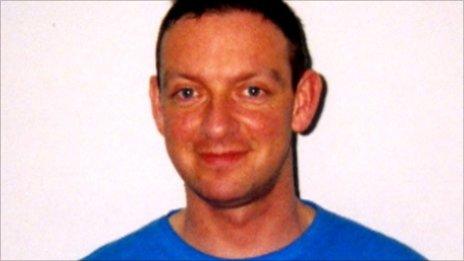Colin Norris: Fresh doubt over killer nurse conviction
- Published
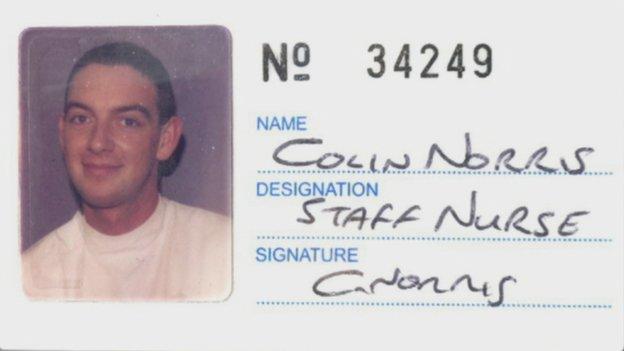
Colin Norris was sentenced to 30 years in prison
Four elderly patients of a nurse jailed for at least 30 years for their murders may have died from natural causes, scientific evidence suggests.
"Angel of death" Colin Norris, 37, of Glasgow, was found guilty in 2008 of injecting the four with a fatal dose of insulin, and trying to murder a fifth old woman, at two hospitals in Leeds.
A blood test from one of them had suggested high levels of insulin.
But a BBC Panorama investigation has now thrown this result into question.
Bridget Bourke, Irene Crookes, Ethel Hall and Doris Ludlam, died after hypoglycaemic episodes - when the blood sugar drops to dangerously low levels.
Vera Wilby recovered from a similar hypoglycaemic episode but died later from an unconnected illness.
June Morrison says she felt as if her "world was closing in" when her son Colin was found guilty of several murders
None was diabetic. And during the five-month trial at Newcastle Crown Court, the prosecution argued spontaneously occurring hypoglycaemia in non-diabetics was so rare a cluster of five cases must have meant foul play.
But now, Prof Terry Wilkin, an endocrinologist specialising in diabetes, at the University of Exeter, has collaborated on research with a mathematician to try to establish how much insulin would have to have been injected to have given the blood-test result, found in Ethel Hall's case.
Prof Wilkin told Panorama: "[The data suggests that] the amount of insulin that would have been required, the amount of insulin injection, was just over a litre [1.8 pints].
"That is unrealistic."
At the trial, Dr Adel Ismail, a retired clinical biochemist, suggested a rare condition called insulin autoimmune syndrome (IAS) could have caused the blood-test result.
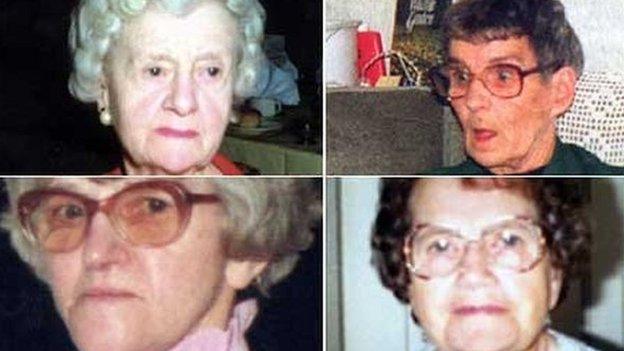
Clockwise, from top left: Bridget Bourke, Irene Crookes, Ethel Hall and Doris Ludlam
He told Panorama: "They were completely unaware of this, I was talking about things which they had never heard, they never thought, they never investigated, and this was three weeks after the trial had started."
IAS, which can cause inappropriately high insulin levels and hypoglycaemia, was said by prosecution experts at the trial to be too rare to be a possible explanation. But more cases have emerged since 2008.
Prof Wilkin told Panorama: "The data that has come from the analysis that was done on the samples that were given to the laboratory is perfectly consistent with insulin autoimmune syndrome.
"So if you're asking me the question, 'Does insulin autoimmune syndrome fit with the facts of the case as reported?' then yes, it does."
In the other four cases, the evidence against Norris was circumstantial, resting on him having been on duty when the elderly women became hypoglycaemic.
Verdict 'unsafe'
But since then, evidence has emerged suggesting hypoglycaemia occurs naturally in up to 10% of sick, elderly people.
Prof Vincent Marks, a world-renowned insulin poisoning expert, told Panorama: "It wasn't as well known at the time of the trial as it is now that in the, particularly the elderly, frail, sick person, hypoglycaemia is far from rare."
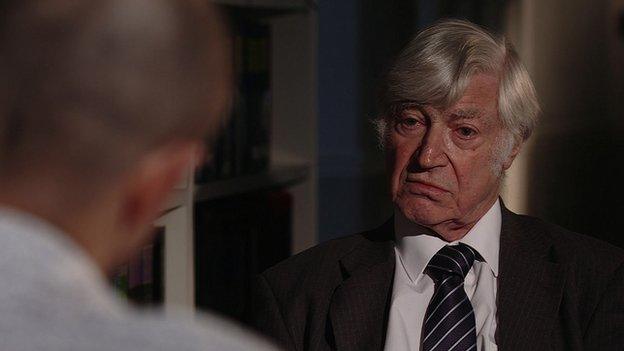
Prof Marks says the accepted science on hypoglycaemia has moved on significantly since the trial
Prof Marks said the "verdict was unsafe".
He told Panorama: "No reliance should be placed upon the fact that there were four people identified who had low blood glucose levels."
After being shown this new evidence, one of the jurors who had found Norris guilty, who cannot be identified, told Panorama he was now "very doubtful that we come to the right conclusion - very doubtful".
He added: "If the new evidence was available at the time… I think they would have thrown the case out."
West Yorkshire Police told Panorama: "Norris was arrested, prosecuted and, on the basis of the evidence presented to the court, he was convicted and sentenced.
"His conviction was upheld at the Court of Appeal in December 2009.
"The case is currently under review by the Criminal Cases Review Commission, and we will consider their findings when they are presented to us."
The BBC is making its evidence available to the commission.
Watch Panorama: The Innocent Serial Killer? on BBC One on Monday at 20:30 GMT.
For viewers in Scotland, BBC Scotland Investigates: The innocent Serial Killer, BBC1 Scotland 20:30 GMT.
- Published15 December 2014
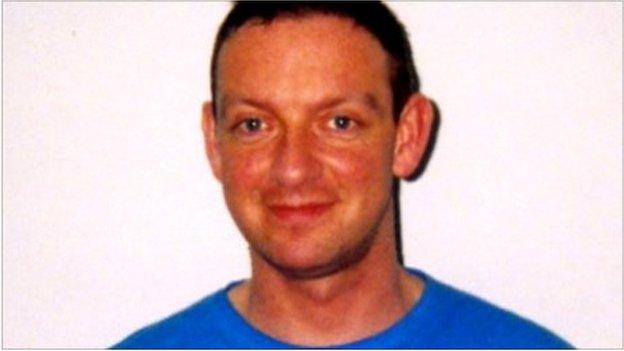
- Published22 May 2013
